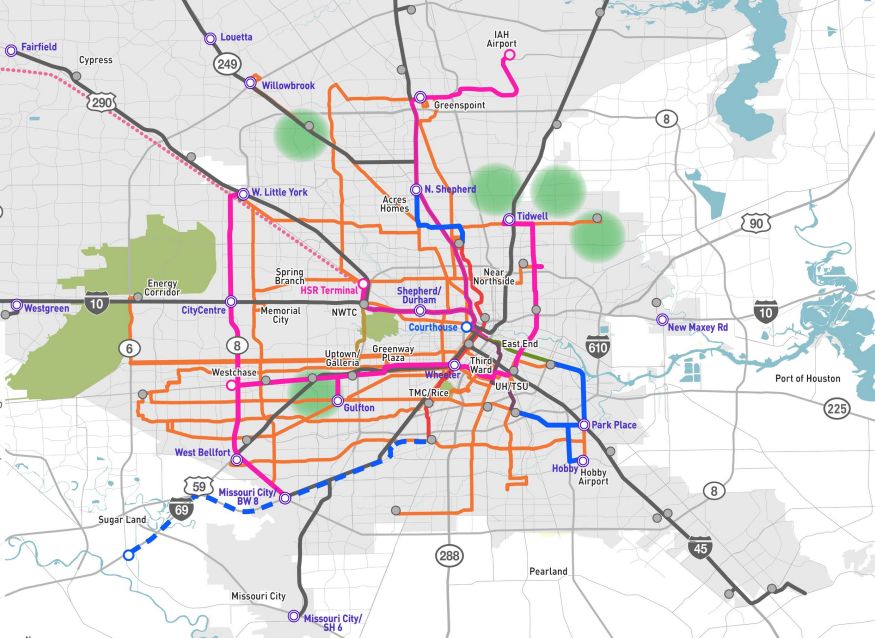That’s one takeaway from this.
Houston transit officials are approaching the next few months as a transitional period, as they assess basic improvements, the demands of travel and the expectations of riders eager for better service.
“We are going to follow the dollars, increase our (bus) frequency and obviously our safety presence,” said Tom Jasien, interim CEO of Metropolitan Transit Authority.
The fiscal 2025 budget, which Metro’s board is scheduled to approve at its Sept, 26 meeting, diverts from recent budgets with a more basic approach to Metro’s spending, and away from the major projects the agency previously advanced to construction. Officials earlier this year shelved plans for the 25.3-mile University Corridor bus rapid transit project, citing the $2.2 billion cost and other priorities.
Officials also, in the 2025 budget, previously called for de-scoping the planned Inner Katy rapid transit project along Interstate 10. Calling some of those specifics premature, Metro revised its draft budget earlier this week to strip many of the project details, opting for a budget and business plan that only outlined plans for general programs and not individual projects beyond 2025.
As a result, the 274-page budget, replete with appendixes, became simply the 57-page executive summary, removing details of any changes to the I-10 project and other initiatives included in the MetroNext program voters approved in 2019. Officials plan to spend $3.6 million continuing development of the rapid transit project, but that includes studying whether it can be used a solution to upcoming construction on I-10’s main lanes.
[…]
The 2025 budget, meanwhile, calls for Metro to increase what it spends on “core services” such as acquiring buses and maintaining them in future years, but far less on major projects included in the 2019 program. The changes shrink Metro’s capital budget plans to $598 million in 2025, $857 million in 2026 and $622 million in 2027.
The largest capital project listed in the 2025 budget is the $60 million parking garage for Metro’s Missouri City park and ride service.
The loss of momentum on major projects has frustrated many Metro supporters.
“MetroNext is now MetroNow, isn’t that cute,” Michael DeStefano told board members at a budget hearing on Thursday. “I have some better names – MetroNeglect, MetroNegligent, MetroNauseous.”
DeStefano pointedly called many of the new board members responsible for derailing long-held plans for better transit in the region, in favor of programs that exacerbate driving.
“Let’s get some true leadership that takes us into the future and not keep us in the past,” he said.
The changes, after years of discussion, have also alarmed supporters because they happened seemingly with little public discussion. With other projects included in the 2019 vote, such as rapid transit in Gulfton, also awaiting support and funding, the budget needs more specifics, transit advocates said.
“It is reasonable they are worried changes are being made to the Gulfton project behind closed doors,” Isaac Metcalf said.
See here for the background. I guess I’m glad that there’s still some future hope for the Inner Katy Line, but to say the least I have little faith in this Metro board. They do not care about the 2019 referendum, they have no vision, and the best we can hope for is improvement on the margins. Now if they do measurably improve bus service, and get the bump in ridership they claim they’re aiming for, that will be a good thing. It’s just not enough, not when we’ve been waiting so long for there to be more, and again I don’t have much faith in them. Go ahead and prove me wrong.

